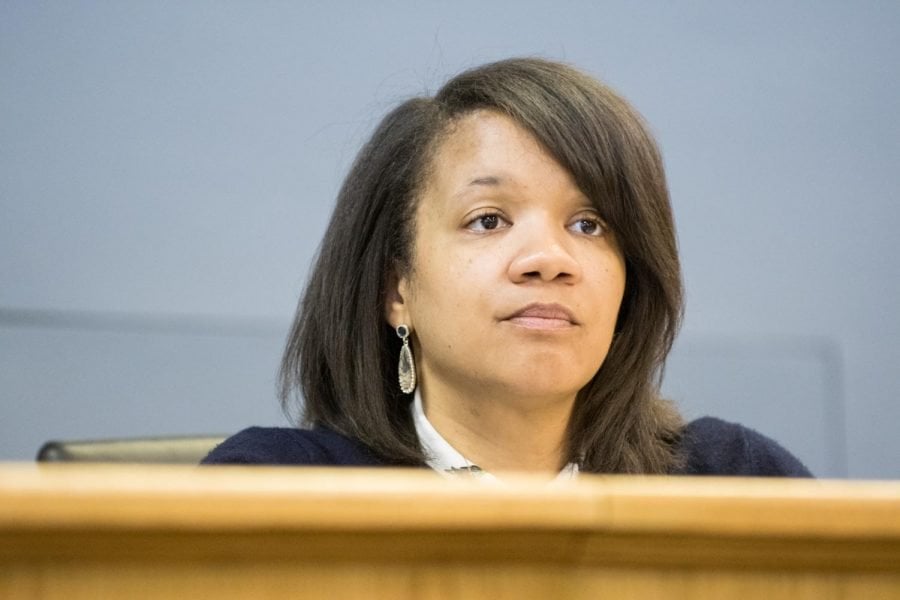Reparations subcommittee backs national reparations bills, talks progress updates during town hall
Daily file photo by Colin Boyle
Ald. Robin Rue Simmons (5th). Simmons participated in a conversation surrounding racial healing and reparations on Tuesday.
August 28, 2020
Evanston’s reparations subcommittee backed a congressional reparations bill and presented updates around the local reparations fund at a virtual town hall Thursday.
The subcommittee is in full support of a congressional bill to study reparations, Ald. Robin Rue Simmons (5th) announced. H.R. 40, first introduced in 1989, establishes the Commission to Study and Develop Reparation Proposals for African Americans.
Rue Simmons said reparations involves compensation, as well as rehabilitation, satisfaction, restitution and assurance of non-repetition.
“We would roll out plans as we do have funding because the need for repair in the black community is urgent,” Rue Simmons said.
The city has established a $10 million reparations fund for local reparations, which will include revenue from the recreational cannabis retailers tax.
The subcommittee plans to dedicate part of the fund towards housing programs. For example, some eligible black Evanston residents could receive up to $25,000 in assistance, in order to either purchase a home or catch up on mortgages. Ald. Peter Braithwaite (2nd) said the subcommittee is still working to finalize this proposal.
Spencer Jourdain, the youngest son of Evanston’s first black alderman, Edwin B. Jourdain, Jr., talked about the progress of achieving racial equality. His five-volume work, “The Dream Dancers,” looks at the lives of his family lineage and people of color.
“The first black people came from the South to live in Evanston and brought… at least one small aspect of redemptive compensation, and that was in the form of fair wages that had been propelled by those like my grandparents who came from Georgia,” Jourdain said. “They were part of the Great Migration.”
National African American Reparations Commission member Kamm Howard said the country is “witnessing an explosion of other cities and states” trying to repair this justice issue.
He added more Americans are starting to understand that a tremendous debt is owed to the black community.
“There will be no satisfaction until we see profound changes in the lives of blacks in this country that only reparations can lead to,” Howard said.
Email: [email protected]
Twitter: @RaynaYu_Song
Related Stories:
— Reparations subcommittee recounts Evanston’s history of discriminatory policies and practices
— Reparations subcommittee evaluates program for black homebuyers


